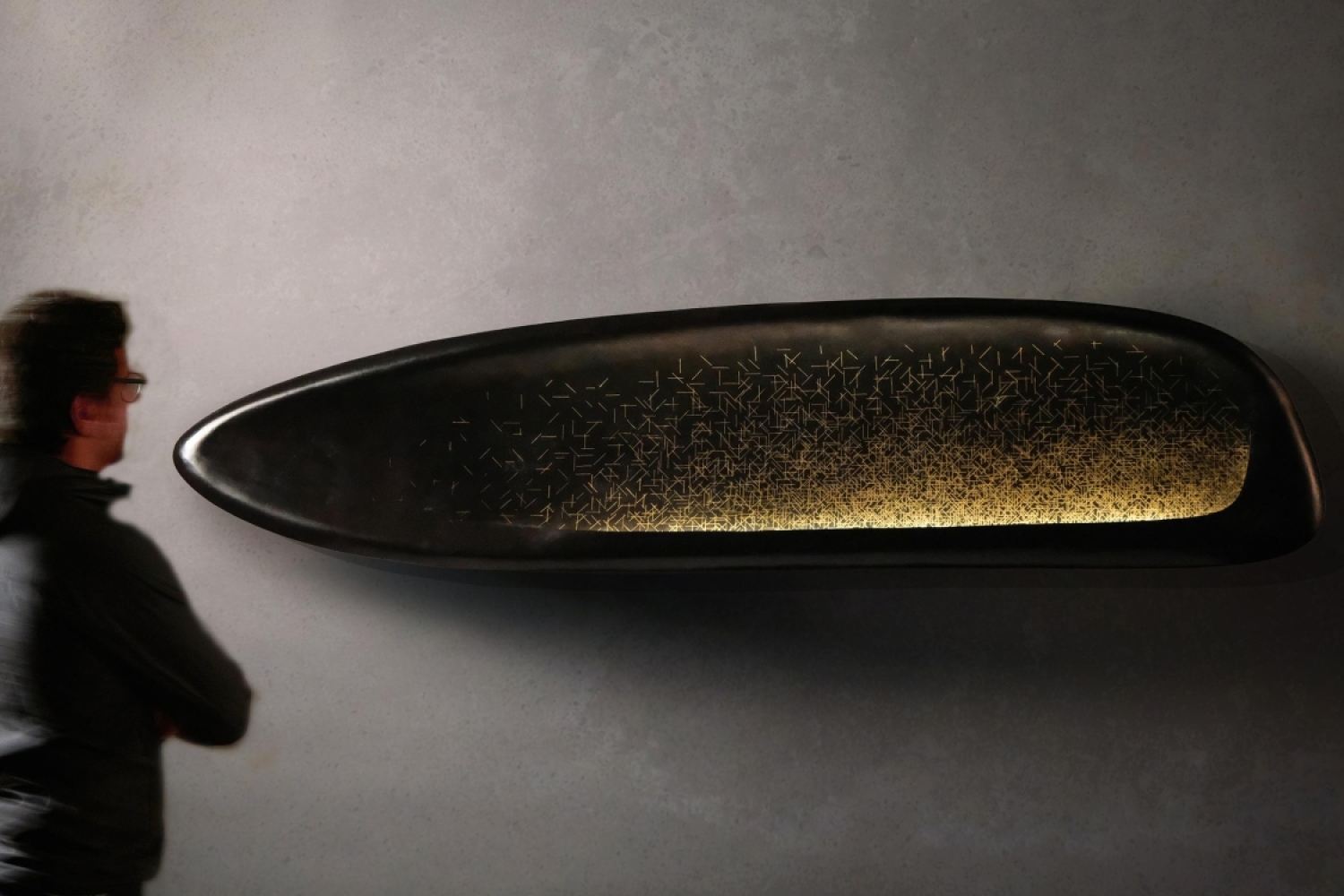

Nolwa Studio, an award-winning entity located in Hyderabad, merges contemporary design with traditional craftsmanship. Their creations, which are both artistic and functional, aim to redefine conventional views of Indian artisanship. Drawing inspiration from India’s rich artistic heritage, they implement innovative design strategies that make traditional crafts relevant in today’s world. Their debut collection, set to be unveiled at the India Art Fair in 2025, draws on the ancient Bidri metal-inlay technique, bringing together its artisans with modern design approaches and international collaborators.
Nolwa Studio’s founder and creative director, Rohit Naag, always appreciated good design, but having grown up around people in medicine, law and engineering, design always stayed a romance. It took for him to move back to India, after his Masters and studies at Duke University and work across renewable energy, consulting and agribusiness in the US, Europe and Asia, to discover that his passion for design could be the way of life. Immersing himself in Indian crafts, he was struck by the incredible craftsmanship and knew that he needed to explore the traditions in a deeper, more meaningful way.
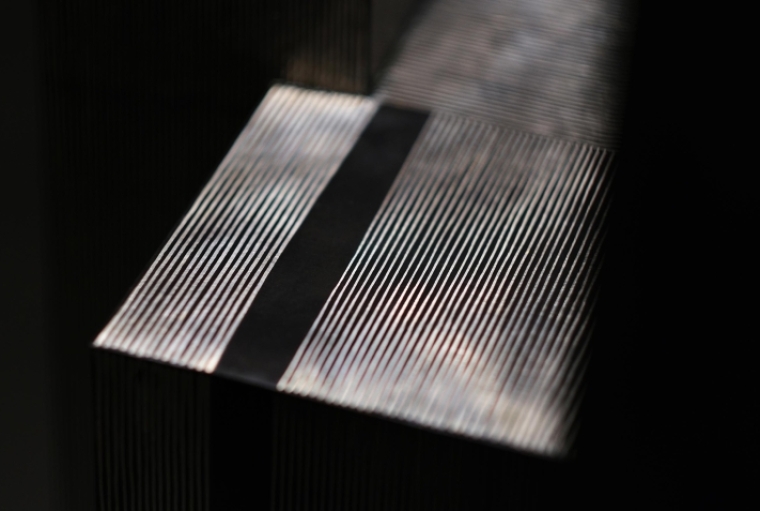
Rohit realised that the artisanal products available failed to showcase the richness of the crafts, were out of sync with contemporary sensibilities and risked being commoditised. Rohit saw it as a design problem, not a marketing one. “Typically people think of luxury design and craft as being European like Murano glass and Italian leather,” he says. “It’s not often that Indian craft forms are considered on an equal footing. But there is no reason for us not to be playing at the same level or uttered in the same breath.”
Motivated by his belief in the importance of craftsmanship and the need to revitalize it in the design world, he studied 12 clusters in Andhra Pradesh and Telangana to gain insights into their processes and challenges. Among these, Bidri, a 600-year-old metal-inlay craft from Karnataka, particularly captured his attention due to its intricate designs and potential for contemporary reinterpretation.
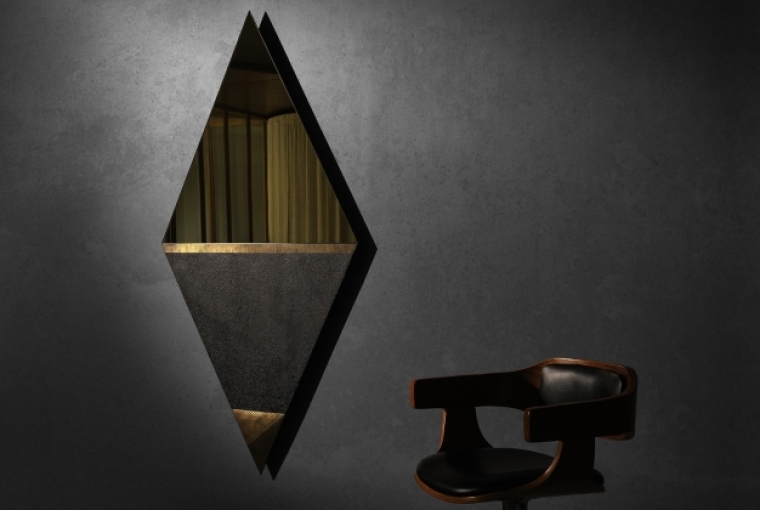
Following these enquiries, Nolwa Studio invited select designers from around the world to reimagine the possibilities of this specialised artisanal form. Chosen based on their aesthetic approaches, the vision was specific; to consider the craft anew and merge it with diverse contemporary sensibilities including organic forms, minimalism and geometry.
Nolwa Studio collaborated with Ammar Kalo (UAE), Arielle Assouline-Lichten (USA), Gunnar Rönsch, and Stephen K Molloy (Germany) to develop their inaugural collection, ‘The Bidri Collection.’ This collection aims to innovate and expand the applications, forms, and scale of the 600-year-old Bidri craft, ultimately challenging its traditional conventions. Historically, the Bidri technique, believed to have originated from Persia, is typically used on 10-12 inch figurines. However, Nolwa Studio has introduced significant design and engineering innovations to create three-dimensional pieces that exceed 5 feet in height.
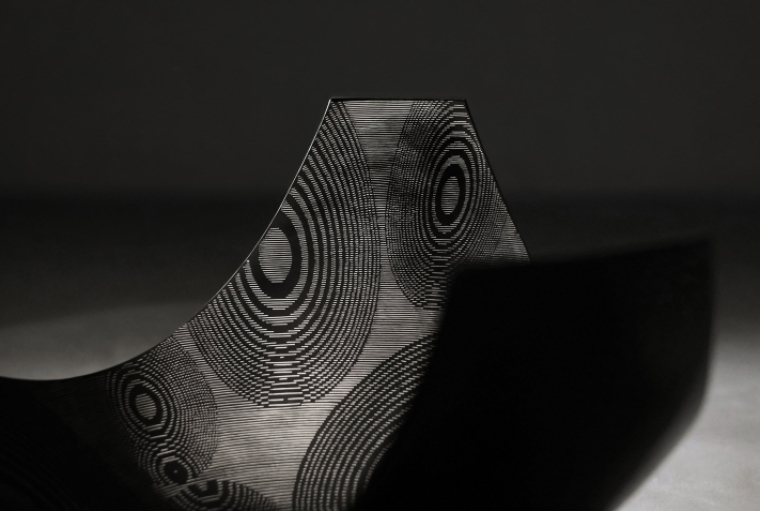
Though it has been a painstaking process, Rohit’s relentless optimism and joy have kept him focused. He explains, “Mucchata is a term in Telugu that describes the feeling you get when you become present to something that evokes delight or wonder. It represents the intrinsic joy that comes from pursuing that thing. This is what inspired Nolwa.”
After 5-6 years of research, development, and extensive prototyping with Bidri master artisan M.A. Rauf and his eight-person team, Nolwa Studio has finally realized their collection. National award-winning craftsman Rauf shares, “I have always wanted to innovate the craft. Meeting someone like Rohit, who persisted and experimented for years, allowed us to overcome multiple challenges and unlock new potentials for the art form.”
The Bidri Collection includes four unique pieces, each reflecting Nolwa Studio’s distinctive design vocabulary. These pieces propel Bidri into bold and unexplored realms while enriching the contemporary design landscape. For instance, the Horizon Lamp (Bidri meets Organic Forms) transcends Bidri's decorative origins, merging it with organic forms to make it an integral part of the lamp’s structure and function. The soft, sunken light source interacts with the inlaid brass, casting a warm, subtle glow that brings the intricate patterns to life.
Each piece in the collection makes a similarly striking statement. Monolith (Bidri meets Mathematics), an elegant cuboid standing lamp shortlisted for the EDIDA Awards, draws inspiration from the linear abstraction associated with Nasreen Mohamedi as well as the dazzle camouflage patterns used during World War I to distort perception. With Bidri inlay applied in exceptionally tight, fine lines, this piece embraces a delightful uncertainty in spatial dimensions.
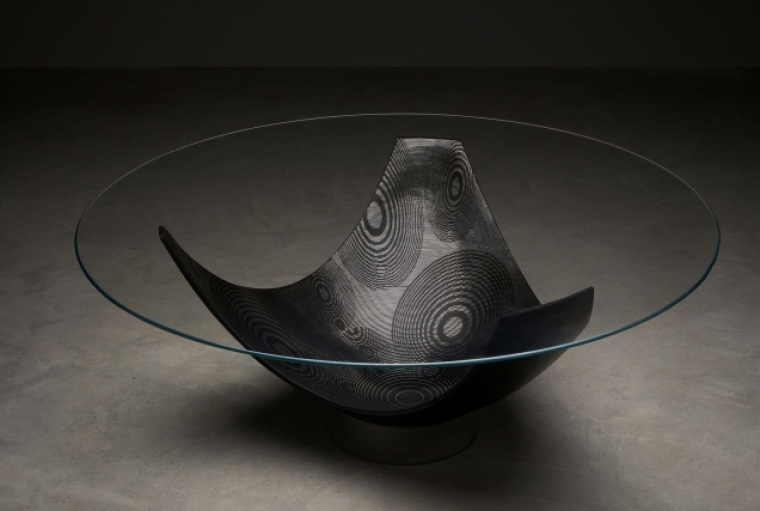
Mathematical patterns found in nature inspired the Drop Table (Bidri meets Mathematics). Its form-active structure features a parabolic base with Bidri inlay, supporting a glass tabletop that appears to float. Viewed from above, the pattern of concentric circles and sharp lines creates the illusion of a splash and its ripples. Equally compelling are the minimalistic details of the Facet Mirror (Bidri meets Minimalism). Shaped like a diamond, it combines a half mirror panel with a half Bidri section, bordered by delicate detailing that encourages viewers to experience the subtle shifts in texture.
Excitingly, Nolwa Studio will launch a new bar cabinet, incorporating a design informed by parametric architecture, at their India Art Fair showcase. They initially launched this collection at Design Miami, Basel, in 2024 and aim to continue expanding their vision while exploring other crafts and regions with the same rigorous approach. As Rohit emphasizes, “India has over 2,800 craft forms, many of which are dying each year. Our crafts are intricate, relying on exceptionally skilled processes and inherited systems of knowledge that are ripe for design intervention. It has been heartening to see the resonance and interest in the modern reinterpretation of craft, and we’re excited to begin our next phase of exploration.”
Words Platform Desk
Date 17.01.2024